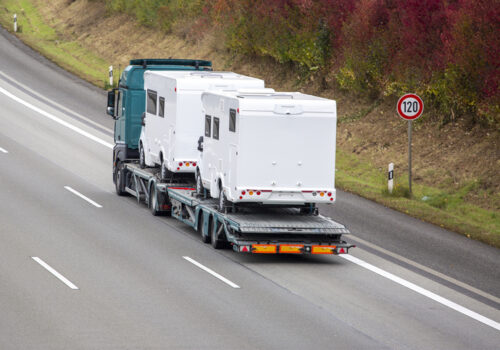Navigating the Road Ahead: Understanding Trucking Services and Their Impact on Business
Freight Transportation: The most common form of trucking service involves the transportation of goods from one location to another. This includes local, regional, and long-haul trucking, serving a wide array of industries such as manufacturing, retail, and agriculture.
LTL (Less-Than-Truckload) Shipping: LTL shipping is designed for smaller shipments that do not require a full truck. Trucking companies consolidate multiple smaller loads from different shippers into a single truck, optimizing efficiency and cost-effectiveness.
Temperature-Controlled Transportation: This service is essential for industries like food and pharmaceuticals, ensuring that perishable or temperature-sensitive cargo is transported under controlled conditions, maintaining product quality and safety.
Hazardous Materials Transport: Specialized trucking services are available for the transportation of hazardous materials, requiring adherence to strict safety regulations and protocols.
Flatbed and Oversized Cargo Transport: Some cargo, such as construction materials, machinery, and oversized items, requires specialized flatbed trucks or lowboy trailers for transportation.
Intermodal Transportation: This involves using multiple modes of transportation, such as trucks, trains, and ships, to move cargo efficiently over long distances, reducing costs and environmental impact.
The Role of Trucking Services in Business and Supply Chains:
Reliability and Timeliness: Trucking services provide a reliable and timely means of delivering goods, ensuring that businesses can meet customer demands and production schedules.
Cost-Effective Shipping: By optimizing routes and load consolidation, trucking services help businesses reduce transportation costs while maintaining service quality.
Flexibility: Trucking services can be tailored to suit the specific needs of businesses, whether it’s same-day delivery, scheduled shipments, or just-in-time inventory management.
Accessibility: Trucking services reach locations that may not be accessible by other modes of transportation, ensuring that even remote areas can receive essential supplies.
Economic Impact: The trucking industry generates employment opportunities and contributes significantly to the economies of both local communities and nations.
Trucking services are an integral part of the modern business landscape, facilitating the efficient movement of goods and enabling economic growth. Whether it’s delivering goods to a local store, transporting vital medical supplies, or supporting global trade, trucking services are a driving force behind the success of businesses and the interconnectedness of the world economy. As technology and sustainability initiatives continue to shape the industry, the future of trucking services holds promise for even greater efficiency and environmental responsibility.





